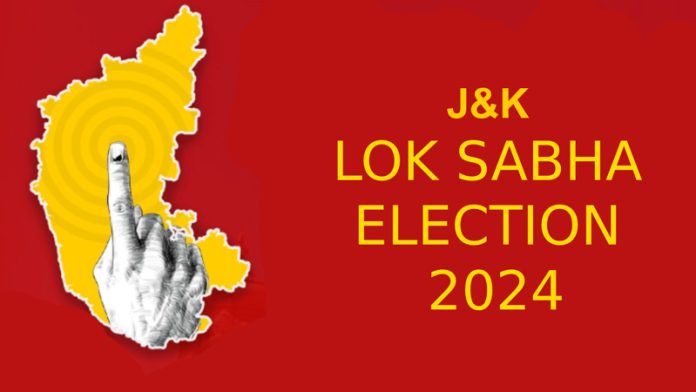K N Pandita
In June 2018, J&K was brought under President’s rule when BJP withdrew its support to the PDP – led coalition Government. Thirteen months later, in August 2019, the J&K State Reorganization Act brought a reorganized State into existence in which the entire State was converted into two Union Territories viz. J&K as one UT and Ladakh as the second UT. Article 370 and 35-A both vanished.
The Valley-based mainstream political parties were unhappy with the reorganization of the State, abrogation of Article 370 and imposition of direct Central administration. The Gupkar Alliance brought the dissenting parties on one platform notwithstanding divergences in their party agenda and line of thinking. To strengthen their agenda of setting the clock back in Kashmir, the Gupkar Alliance joined hands with the national mainstream opposition in the hope that through the instrumentality of the opposition, the Gupkar Alliance would be able to build an opinion in its favour with the broad masses of the Indian nation. However, even in the rank and file of the national mainstream opposition, there were conflicting views regarding the continuation of Article 370. Perhaps either the mainstream valley political leadership had not been able to convince the Indian nation that it used the article in good faith and with the right intentions or that there was much maligning of the State administrative machinery about the abuse of Article 370. In any case that is no more a subject of debate.
The Home Ministry has briefed the Election Commission on its assessment of the security situation in the Union Territory and has given it the green signal. Consequently, the EC is on a visit to JK. However, the indications are that the EC would be making its assessment of the law and order situation and decide about the feasibility of holding the election on five Parliamentary seats in J&K. In doing so, the EC would be taking recourse to its prerogative to overrule the decision of the Home Ministry, though circumstantially that situation is out of the question.
However, the allied question is whether Assembly elections will also be held simultaneously or not. The impression is that the Centre may not be interested in holding Assembly elections simultaneously for two reasons. Firstly, it would like to observe whether the Parliamentary elections are held smoothly and without any major disturbance by unwanted elements. Secondly, the Kovind Committee constituted by the Centre to examine the feasibility of holding Parliamentary and Assembly elections simultaneously throughout the country is yet to submit its report. Informed sources indicate that this report is likely to be submitted to the Government within days. If that happens, things would become clear for the EC to arrive at some decision about the subject.
However, there is a directive from the Supreme Court that Assembly elections should be held by September 30, 2024. Taking this directive into consideration along with the recommendation of the Kovind Committee, what will be the course of action for the EC in case the Kovind Committee does not consider combined elections to the Parliament and Assemblies feasible? Therefore in the case of J&K, the EC will have to go by the directive of the Supreme Court and hold Assembly elections in J&K before September 30. It means that in any case Assembly elections have to be held before 30.
Of course, Parliamentary elections will have a bearing on the Assembly elections as a matter of common sense. Opinions are divided. By and large, it has been found that the Indian electorate does not necessarily follow the pattern of Parliamentary election for the Assembly election because the latter is more localised. However, in the case of J&K a few other factors will come into play. The fallout of the Reorganization Act of 2019 is not effaced from the minds of the people. The political parties that have become the components of the Gupkar Alliance will undoubtedly fight the election on the plank of restoration of the pre-2019 status of the State and return of Article 370. The slogan of depriving the State of its autonomous status will be trumpeted loudly. People are not still sanguine enough to understand and appreciate the big developmental undertakings in the State and the long steps it has taken in the post-Reorganization period towards the overall growth of the State.
In this scenario, clubbing of Parliamentary and Assembly elections in one lot would be rather risky and uncertain. Any well-wisher of the people of the State would conveniently recommend that the two elections should not be held simultaneously and a gap of a short period should be allowed for the voters to cast their valuable vote very judiciously and not out of emotion. After all, the people of the State are getting the chance of an elected Government after more than five years. During this long period, many things have changed in J&K which cannot be and should not be ignored by the electorate.
A significant thing to be noted is that this time Rajouri and Poonch have been added to the electoral jurisdiction of the Anantnag Parliamentary constituency. This will be a completely new phenomenon in Jammu and Kashmir Parliamentary elections. It has to be remembered that many judicial privileges have been announced by the Union Government regarding Gujjars, Bakarwals, Paharis and many other backward communities in J&K most of them being the residents of the newly added areas to the South Kashmir Parliamentary constituencies. It is bound to have an impact on the outcome of the elections. Hence it remains to be seen how far this experience will be beneficial to the people of J&K.
In the final analysis, we hope that the J&K will come out of a dark and uncertain period and will begin a new march along the path of true Parliamentary democracy and development.
Trending Now
E-Paper


